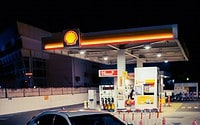The Blind Side of Anti-Corruption: What We May Not See
Nigeria appears to be definitively on track for major national and state anti-corruption initiatives; where the track will lead to nobody knows. The time and climate for disinterested and rigorous anti-corruption activity in all areas of the country appears to be very ripe. Furthermore, it is certain that most Nigerians especially those outside of the top 1% are enthusiastic about the anti-corruption climate designed and (to be) enforced by the administration of President Muhammadu Buhari. However, there is a serious “blind side” to it all.
Major anti-corruption initiatives focus an entire nation, deliberately or inadvertently, on the exposure of significant acts of corruption and the prosecution of those who are culpable. For starters, shocking scandals break, no-nonsense investigations announced, tough prosecutions undertaken, double lives exposed and what people knew all along becomes proven. The stories produced by a sustained anti-corruption blitz can be irresistibly interesting or entertaining, if not habit forming.
For the expected outcomes, the refund and repatriation of vast fortunes to their rightful coffers, the long jail sentences meted out, the fall from grace of one-time great politicians, the virtual end of political dynasties, the crying of ‘poverty’ by those who stole hundreds of millions of dollars and so forth and so on, make excellent and much sought after news stories and make most of the citizenry feel a ‘sense of indebtedness’ to the government rooting out corruption.
The “blind side” of anti-corruption is that it takes much attention away from other serious and pressing affairs of the state. Ironically, the major beneficiaries of this unusual blind side of anti-corruption are normally the most corrupt individuals in the land themselves. Private sector corruption may benefit in times of public sector corruption. People in Nigeria like in any other highly corrupt country believe that sincere anti-corruption is their salvation and follow the stories adhesively. Yet, scandals may be false or exaggerated and there is no punishment for a government perpetrating such.
It can be surprising that anti-corruption can be used to create a very strong and persuasive “diversionary spectacles” to be absorbed by citizens when in reality nothing serious is done about corruption whatsoever. Such is not the stuff of anti-corruption but the deliberate deception of the citizenry. This is very dangerous for a country’s future.
People will surely delight in the spectacle for a while and when corruption remains intact or gets worse in the end, the safest and most perennial excuse supporters of failed African leaders proffer is, “He is a good man but surround by bad people”. Nigerians should never tolerate such tried and tested deceptions. The so-called “good man” is a thief too.
The first example of the blind side of the current anti-corruption drive has been the amnesia concerning the “clean-up” of the Niger Delta. The clean-up is important because it directly affects the lives, livelihoods and lands of an entire geopolitical zone in Nigeria of which there are six. The South-South did not vote for Buhari. What is now happening to or about the clean-up project?
When Buhari recently announced the clean-up will commence in earnest many from the Niger Delta praised him and put down ex-President Goodluck Jonathan as a result. The initiated were much more cautious in their evaluations. Unfortunately, pollution and spills have continued to occur regularly since the President announced the start of the clean-up making life very easy for oil executives and shareholders that have made billions of dollars from irresponsible pollution. No attention in this direction at the moment.
The second example of anti-corruption’s blind side is the frightening case of floods. When the floods devastated many parts of Nigeria in 2012 not only did the government of ex-President Jonathan do derisory stuff for relief and mitigation, it tried to hide it from the rest of the world. Dams were opened in Cameroon and the “Giant of Africa” could handle it at all.
Budgets intended for such emergencies were rapaciously looted and the people left to fend for themselves, many drowned, many committed suicides, many became refugees in their country, many women raped in refuge shelters etc. The floods have hit again for the same reasons but with a lesser impact which has still managed to displace hundreds of thousands and prompted the evacuation of entire communities / settlements but again the world is not hearing about it. Is it trend that every successive administration should hide such stories but show the world they are doing well in the anti-corruption department?
The third example of the blind side of anti-corruption is “hunger”. Nigerians are highly skilled at ignoring, hiding or denying the incidence of hunger in the country. It might be down to sheer pride. The privileged constantly exploit the majority of Nigerians because of their hunger in everyday life or at election times. If Buhari is keen on genuine “CHANGE” and good governance, hunger and the means by which people prevent or overcome hunger (jobs, salaries, industries, credit, and recognition of informal markets) should be at the top of his priorities. Yet, no one is talking about hunger in an administration that is out to “CHANGE” Nigeria. Anti-corruption is providing much tastier focuses.
The necessity of serious and strong anti-corruption drives in Nigeria is unquestionable; Nigeria needs its more than ever before. Nigeria has not been made rotten by an ‘act of God’ (literally or figuratively) and thus the complete or incomplete eradication of mechanisms and cultures that cause corruption to emerge, evolve and persist is the responsibility human beings most especially the leaders. The introduction of anti-corruption should be supported by the application of the “Golden mean” to governance i.e. anti-corruption should be very well balanced against of all affairs of the state.
So is it serious and rigorous anti-corruption or is it the illusory spectacle of anti-corruption? Time will tell the real story.
Grimot Nane



